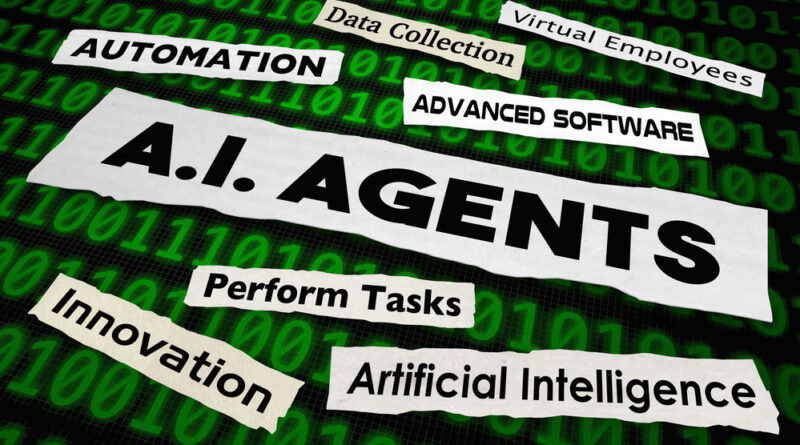Security Budgets Up, Trust Down: How AI Agents Are Re-shaping Enterprise Cyber-Defence
When Salesforce polled more than 4,000 IT decision-makers for its latest State of IT study, one message rang louder than any product demo or keynote hype: in an AI-powered economy, security is no longer a compliance tick-box but the fuel that keeps customer trust—and therefore innovation—alive. The research paints a sharply dual portrait of agentic AI: at once the greatest accelerator of defensive capability and the fastest-growing source of risk. Here’s what’s at stake as enterprises scramble to harden their digital fortresses.
Budgets Climb as Breaches Multiply
Three-quarters of organisations expect to grow their security spend over the next fiscal cycle, with just 2 per cent predicting cuts. Cloud breaches, data poisoning, and a resurging wave of phishing and ransomware top the threat leaderboard, eclipsing worries about traditional malware. To blunt the impact, CISOs are doubling down on encryption, robust backup regimes, identity and access management, zero-trust architectures, and data-masking techniques.
Yet money alone won’t plug every gap. Nearly 70 per cent of security leaders say compliance is becoming harder as global regulators—from Brussels to Brasília—rush out new AI and data-protection statutes. Alarmingly, 43 per cent admit they feel under-prepared for the next wave of AI-specific rules.
The AI Agent Paradox
| What AI Agents Bring | % of Leaders Agreeing |
|---|---|
| New security and compliance challenges | 79 % |
| New security opportunities | 80 % |
On one side, autonomous AI “co-workers” can be reckless if let loose on sensitive data without guardrails; on the other, they promise transformational gains in threat detection, automated patching, and real-time compliance auditing. Every security chief interviewed believes agents can improve at least one critical safeguard—provided that governance keeps pace.
Trust Is Fraying—And Customers Know It
Consumers are watching. Nearly two-thirds (64 %) already suspect companies of mishandling their information, while 61 % insist that rapid AI advances make strong data stewardship more important than ever. Unsurprisingly, 64 % of security leaders say privacy fears slow customer adoption of AI services.
Transparency could calm nerves: 42 % of respondents in a separate Salesforce pulse poll said clear explanations of how AI is used would build confidence; another 31 % want organisations to demonstrate how outputs are generated.
Governance Gaps: Confidence vs. Capability
Although seven in ten firms claim to have AI security protocols on paper, just over half of security leaders feel fullyconfident they can deploy agents with the right guardrails in place, and only 47 % say they can explain model decisions clearly to end-users. The gulf between boardroom rhetoric and operational readiness risks eroding the very trust that AI initiatives hope to earn.
What Forward-Thinking CISOs Are Prioritising
-
Proactive threat detection and response
AI agents triage unusual activity, correlate alerts across clouds, and even co-ordinate remediation—shrinking the dwell time attackers enjoy. -
Continuous bias and vulnerability audits
Autonomous “red-team” agents probe live models for data-poisoning backdoors and discriminatory outputs, feeding findings directly into dev pipelines. -
Automated compliance monitoring
Machine-readable policies baked into infrastructure-as-code flag violations instantly, reducing costly manual reviews. -
Explainability as a service
Natural-language “why engines” translate complex model logic into business-friendly narratives for auditors, regulators, and—crucially—customers. -
Skilling up on AI risk
Security roles are evolving toward AI oversight, data-governance fluency, and ethics-by-design. Training budgets for these competencies are rising in tandem with tooling spend.
The Road Ahead: Regulate, Integrate, Communicate
With regulatory complexity set to intensify, survey authors foresee three converging trends:
-
Continuous compliance will replace annual audit cycles as rules evolve in real time.
-
Proactive agent adoption will separate innovators from laggards; those who view AI purely as a liability risk missing efficiencies their rivals exploit.
-
Skill evolution will accelerate, shifting security hiring toward data-science literacy and ethical decision-making.
In short, the era of agentic AI is forcing a pivotal culture shift: security can no longer be bolted on; it must be architected into every model, workflow, and customer interaction. Organisations that grasp this—and prove it through transparent, explainable practices—will not only survive rising threats but convert security into a competitive moat. The rest may discover that, in an AI economy, trust is the scarcest (and most expensive) commodity of all.
Photo Credit: DepositPhotos.com

